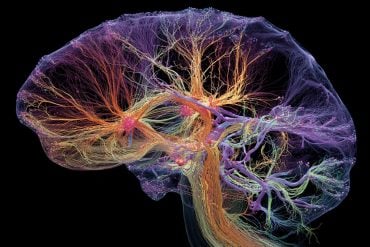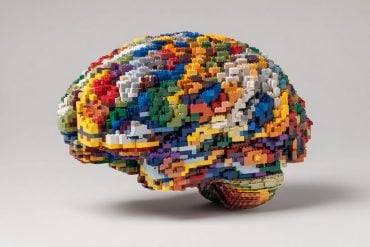Summary: A recent study reveals a link between early-life concussions and faster cognitive decline in later years.
Conducted on World War II veteran twins, the research showed that twins with a history of traumatic brain injury (TBI) scored lower on cognitive tests and exhibited quicker decline than their non-injured counterparts. Especially concerning was the pronounced decline in those who had TBI after age 24 or experienced loss of consciousness.
The study underscores the long-term risks of TBI and emphasizes the need for early interventions.
Key Facts:
- Among the 8,662 WWII veteran participants, 25% had experienced a concussion at some point in their lives.
- Twins with TBI history, especially those injured post-24 or with loss of consciousness, demonstrated pronounced cognitive decline.
- Despite the modest effect sizes, the cumulative impact of TBI and other detrimental factors might be significant enough to necessitate cognitive evaluations.
Source: AAN
A study of twins shows that having a concussion early in life is tied to having lower scores on tests of thinking and memory skills decades later as well as having more rapid decline in those scores than twins who did not have a concussion, or traumatic brain injury (TBI).
The study is published in the September 6, 2023, online issue of Neurology.
“These findings indicate that even people with traumatic brain injuries in earlier life who appear to have fully recovered from them may still be at increased risk of cognitive problems and dementia later in life,” said study author Marianne Chanti-Ketterl, PhD, MSPH, of Duke University in Durham, North Carolina.
“Among identical twins, who share the same genes and many of the same exposures early in life, we found that the twin who had a concussion had lower test scores and faster decline than their twin who had never had a concussion.”
The study involved 8,662 men who were World War II veterans. The participants took a test of thinking skills at the start of the study when they were an average age of 67 and then again up to three more times over 12 years. Scores for the test can range from zero to 50. The average score for all participants at the beginning of the study was 32.5 points.
A total of 25% of the participants had experienced a concussion in their life.
Twins who had experienced a concussion were more likely to have lower test scores at age 70, especially if they had a concussion where they lost consciousness or were older than 24 when they had their concussion.
Those twins with traumatic brain injury with loss of consciousness, more than one traumatic brain injury and who had their injuries after age 24 were more likely to have faster cognitive decline than those with no history of traumatic brain injury.
For example, a twin who experienced a traumatic brain injury after age 24 scored 0.59 points lower at age 70 than his twin with no traumatic brain injury, and his thinking skills declined faster, by 0.05 points per year.
These results took into account other factors that could affect thinking skills, such as high blood pressure, alcohol use, smoking status and education.
“Although these effect sizes are modest, the contribution of TBI on late life cognition, in addition to numerous other factors with a detrimental effect on cognition, may be enough to trigger an evaluation for cognitive impairment,” Chanti-Ketterl said.
“With the trend we are seeing with increased emergency room visits due to sports or recreation activity injuries, combined with the estimated half million members of the military who suffered a TBI between 2000 and 2020, the potential long-term impact of TBI cannot be overlooked. These results may help us identify people who may benefit from early interventions that may slow cognitive decline or potentially delay or prevent dementia.”
A limitation of the study was that traumatic brain injuries were reported by the participants, so not all injuries may have been remembered or reported accurately.
Funding: The study was supported by the National Institute on Aging and the U.S. Department of Defense.
About this neurology research news
Author: Natalie Conrad
Source: AAN
Contact: Natalie Conrad – AAN
Image: The image is credited to Neuroscience News
Original Research: The findings will appear in Neurology







